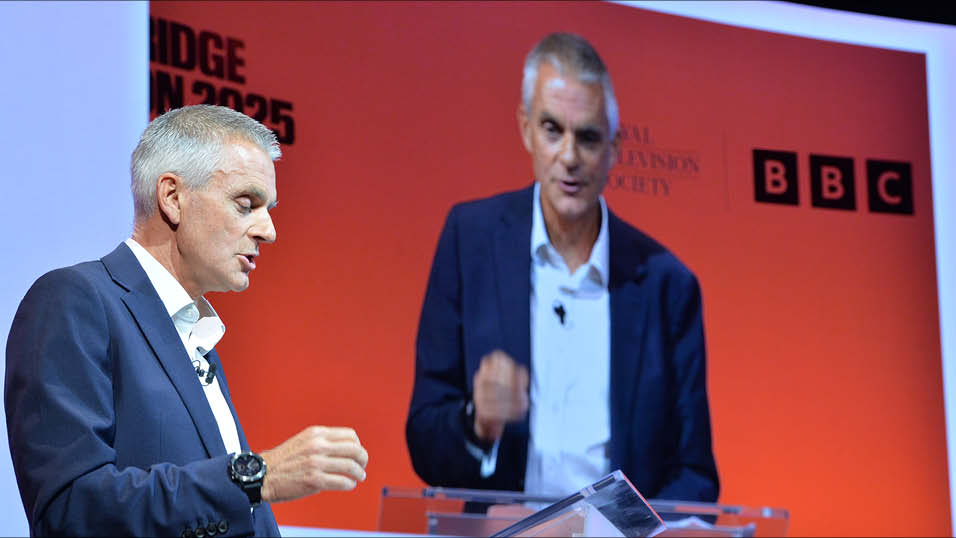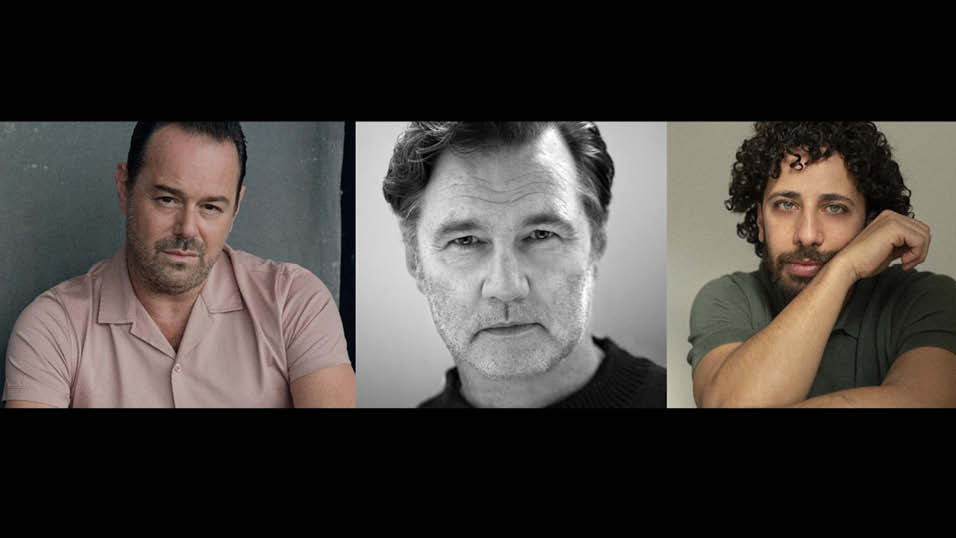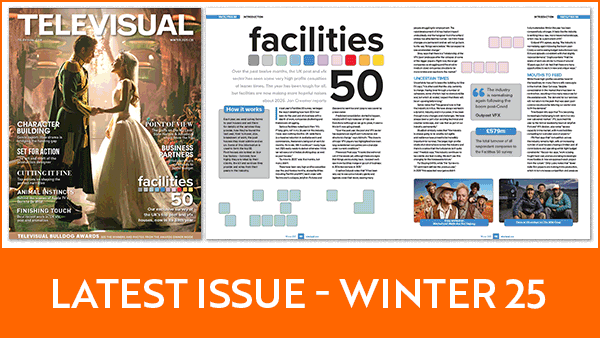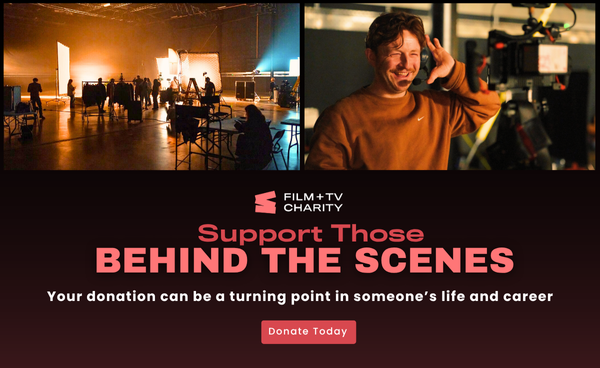This year’s RTS Cambridge Convention is titled “Where do we Grow from Here?” It hits a purposely optimistic note, despite many in TV feeling the industry is under assault from all sides. Pippa Considine reports from Day One of the convention.
Keep on moving out to the regions
The conference sessions opened with BBC director general and Convention chair Tim Davie dismissing too much negativity as “self-flagellation.” He framed BBC investment as “venture capital for the creative industries” and gave the floor to consultancy Public First CEO Rachel Wolf to show how PSB money invested in regional clusters can radiate into the local creative economy. Birmingham, he said, is in phase 2 of BBC investment, with around 1000 people now based at Digbeth.
Speaking later in the day, Secretary of State for Culture, Media and Sport Lisa Nandy described the BBC as “a light on the hill”. She called on the industry to diversify its workforce and accelerate its move into the regions and cited Digbeth as a beacon, also praising Bristol-based Plimsoll, which she has recently visited. To broadcasters, she said: “If your commissioners are all still in London, really sort that out.”
“We are keen to work with you to support independent production companies,” she said when questioned by outgoing pact CEO John McVay.
Lessons from content creators
Delegates heard from three content creators. Jade Beason, founder of Social People, launched her first video in 2020. As a creator consultant to others wanting to get into the sphere, she now has over 12 million views and over one million watch hours, 280,000 subscribers and has earned over £160k.
BrandonB is the founder of StudioB, which is rooted in the creator economy.
While Shabaz Ali, a former teacher, is a satirist with millions of followers who can earn his former salary with just one video.
All significant creators, they agreed, are also media companies.
But what could they teach the TV great and the good? Most importantly, how they build and make the most of the trust that they have from their audiences, which are constantly feeding back to them. Content honed by fan feedback can reach fans globally and build that international fan base at speed.
They all had experiences of working with traditional media and agreed that there was too much fear; old media needs to trust creators when working with them. Beason added that the old media world should also think of them as consultants.
How to keep making money in TV
Taking a step back, three international TV execs told the audience about how they see monetisation of IP working in a world where the audiences are increasingly coming via social media.
Kevin Mayer, a former Disney exec, is co-ceo of Candle Media, which owns UK-based childrens’ entity Moonbug, with over 200m subscribers across YouTube channels. Social media is a first stop to “find brands, stories and personalities and extend that into traditional media,” said Mayer
Joe Ravitch is co-founder of merchant bank Raine. Ravitch didn’t pull any punches about the hurdles from big tech saying that technology companies are going to be the enemy of great storytelling and content creation over the long term.
The giants might be bad for storytelling, but technology companies should still be treated as friends. They’re working with Piers Morgan on his YouTube ventures and with one of Roblox top developers Voldex.
In this world, the old friends – IP and personalities – are as always the way to profit. Ravitch cited the re-leveraging of the recently out of copyright Winnie the Pooh. And opportunities around sport.
Ceo of Redbird IMI Jeff Zucker agreed social media and digital content and digital creators are a huge part of where the world is going but, as new owners of All3Media, believes in great quality, traditional content.
Mayer talked about the high risk of relying on making money from content via social media platforms. While most platforms don’t pay creators, YouTube does, but even there a “tweak of the algorithm,” he said can move viewing numbers from 12 to nine billion.
Zucker described “patient capital.” There will be consolidation in business over the long term we can play in that and also play in digital creator economy.” But he agreed with Mayer, “you are vulnerable to slight tweaks in the algorithm that you can’t control.”
Cost savings on the production side will come with AI, said Ravitch. Mayer added that the democratisation of content creation around lower cost of entry “will be hard for incumbents.”
“AI will allow everyone to have a paintbrush” said Zucker, “but there will still be Picassos that come along.” He’s keen to realise value from formats, with Traitors having changed the trajectory of Studio Lambert and All3 Media.
View from the superindie bridge
Jane Turton, CEO All3Media and Marco Bassetti, CEO of Banijay Entertainment gave the superindie perspective. In terms of change, Netflix is now All3’s single biggest buyer. “I appreciate that there are massive challenges. But a lot that’s happened in the last 10 years has been incredibly positive.” Light on the horizon? “We are sensing that the US co-production market is coming back,” she added.
Banijay now numbers 120 companies. The new social platforms mean “there are better ways to test and also more opportunity,” said Bassetti. Developing relationships with these platforms could lead to more opportunities for sharing windows.
Talking about the producer business model, he pointed to the advantage of the production model having around 75 % of flexible costs.
They both discussed how costs could go down. Both are using AI routinely behind the scenes. All3 also recently used it to recreate the voice of Shackleton’s crew on Endeavour for Nat Geo/ Disney +. Turton could see AI use extending for creative treatments such as recreating true crime.
Both revealed fears that if production costs decline with the advent of AI, so will the profit on a cost-plus basis. Diversification is central. “We have to become not just production company but a media company,” said Bassetti. And retaining IP is central to this.
Turton addressed the issue of increasing relying on deficit finance. Where two-year recoupment cycles have been routine, they are now lengthening. “Clever funding models” need to include brand partnerships and imaginative windowing. She acknowledged that “it takes muscle to work it out.” No surprise that most drama is coming out of superindies.
A difficult market has silver linings. If broadcasters can’t afford big plays, then there’s a chance to partner and then be able to retain some IP, observed Bassetti.
Growth and profit, of course, are fundamental for aggregated producers. “These are highly leveraged businesses with banks sitting behind and shareholders,” reminds Turton. If they don’t adjust to the market and grow, then they fail. And that includes learning from creators who know their businesses so well… “partnering with the people we saw on the stage rather than viewing them as the bitter enemy.”
At All3, History Hit is already self-funding on YouTube. Learning from this experience in factual, there’s no reason why scripted might not follow, she suggested.
Banijay is rich in formats, with its latest title Let’s Play Ball launching at Mipcom in October. At All3, Turton says format development is a key area of investment. Keeping IP is one goal, but streamer deals can allow for multiple versions of the same show.
David Tennant calls for the industry to nurture scripted talent
Rounding out the day, David Tennant gave the on-screen POV in conversation with Charlotte Moore, CEO of Left Bank Pictures.
Tennant has also executive produced, notably on Des and Around the World in 80 days. “I’m aware that there are people who are better at it, who have that skill set,” he said.
In praise of the PSBs, he noted that “what the BBC and ITV do it sort of sets the standards…. Streamers can do it with more money, more flare, but the BBC is still a kitemark …We need to cherish it.”
Maintaining the UK’s leading role on the creative stage is something we need to preserve. “We punch above our weight within all the creative arts in this country because we cherish it…I worry that that isn’t happening so much.”
Moore pointed out that while the creator economy is flourishing, it is based in factual, not drama, for the most part.
Tennant voiced concern about the disappearance of local repertory theatre and the opportunities that it afforded for up-and-coming writers, directors, actors. Working in the regions and in starter jobs gave more chances to kids from different backgrounds. He started with a grant for drama school. “If you’re cutting off a certain socio-economic bracket, you’re cutting off some of those stories that people will be able to tell,” he said.
Image credit: Richard Kendal/RTS
Jon Creamer
Share this story














